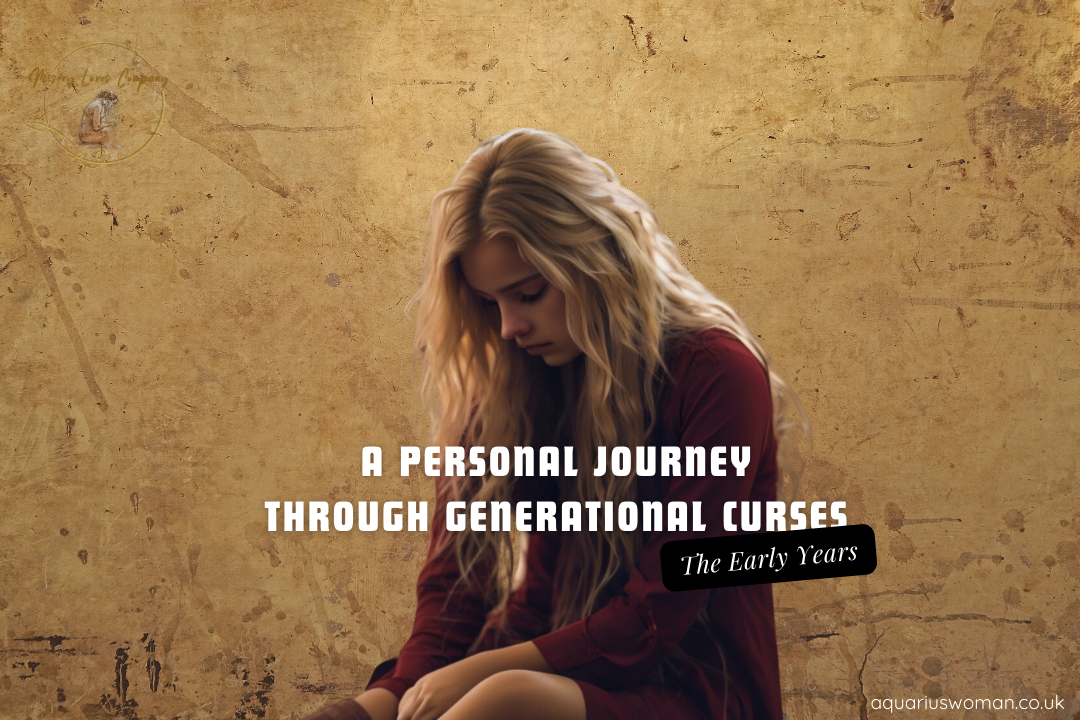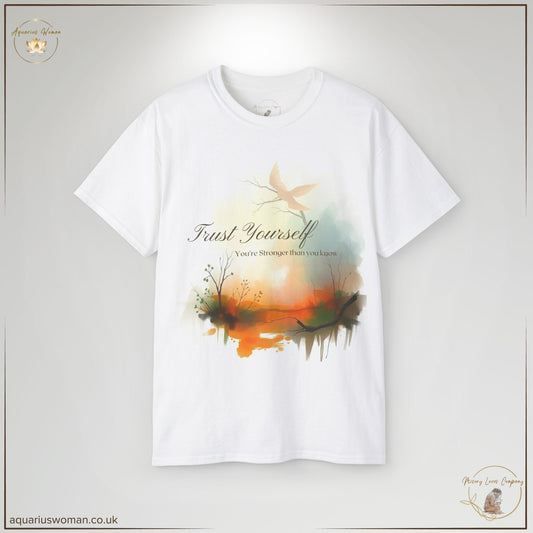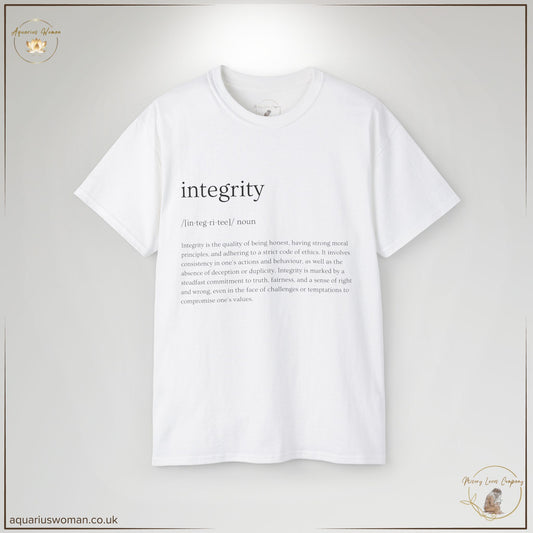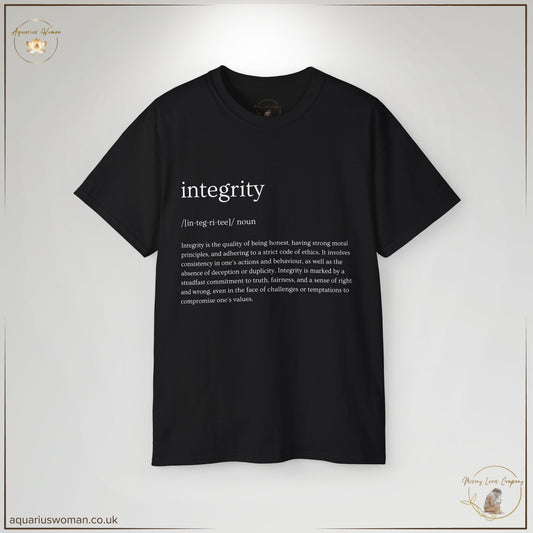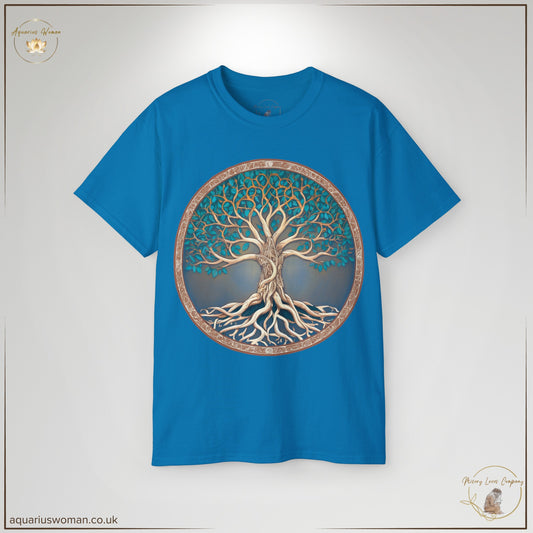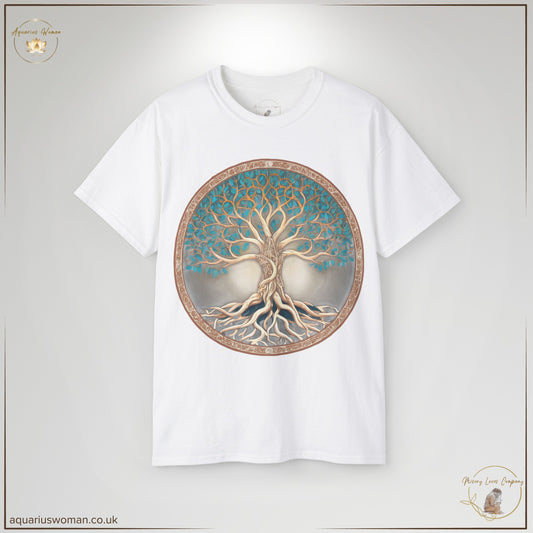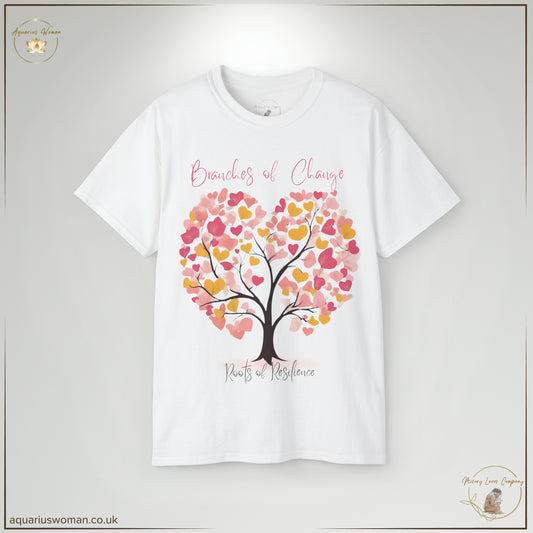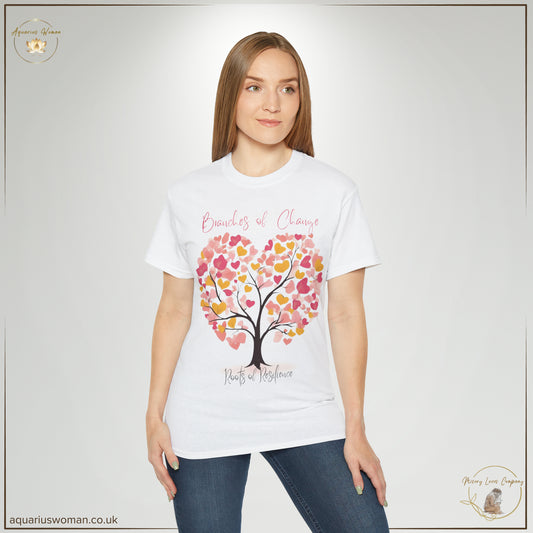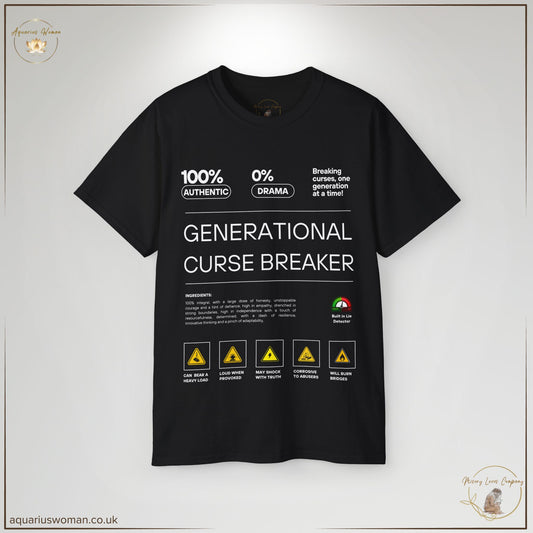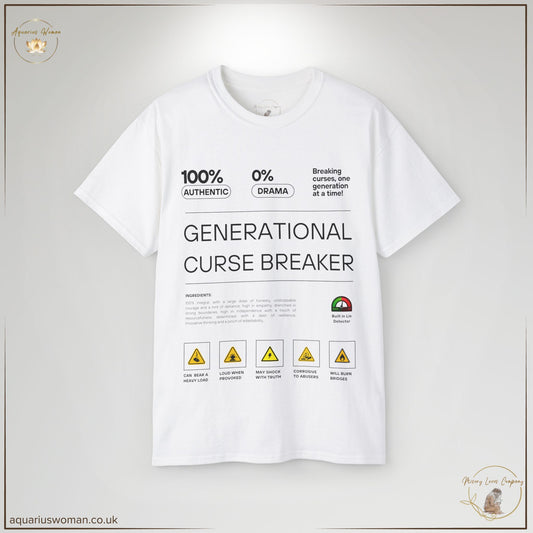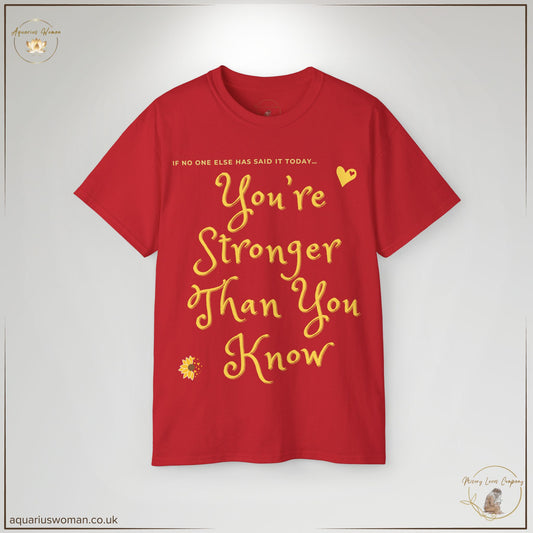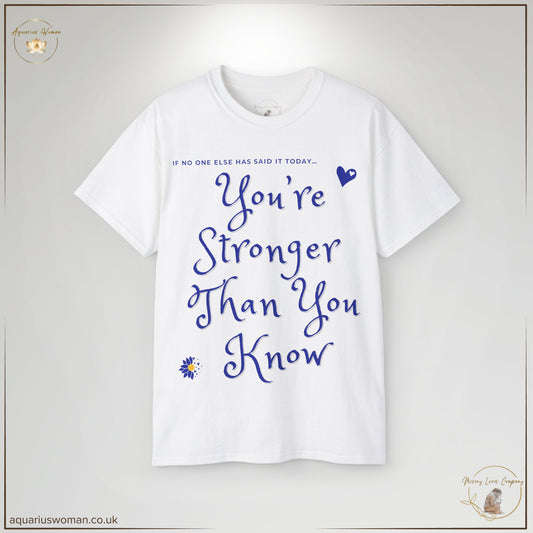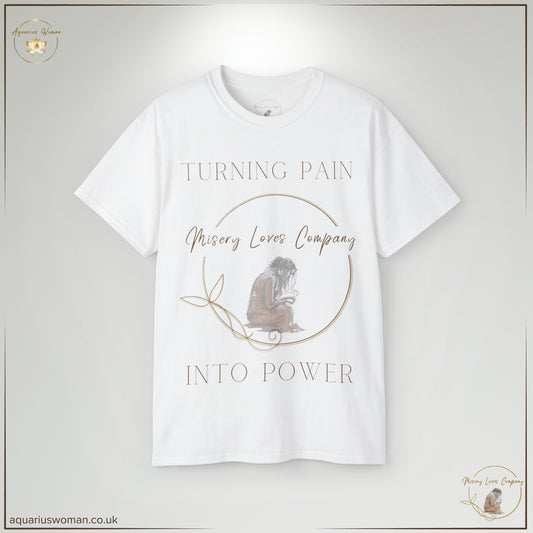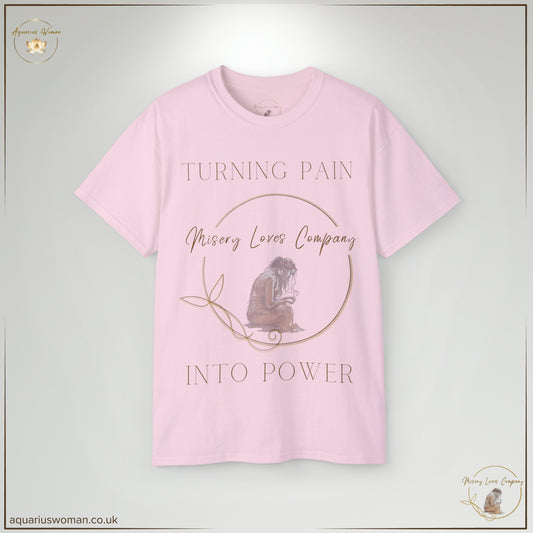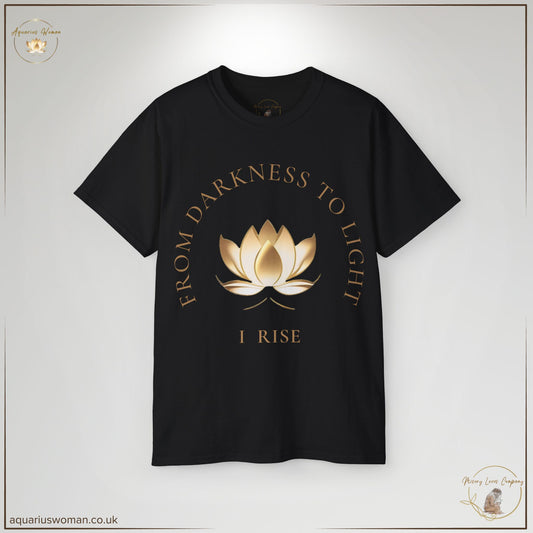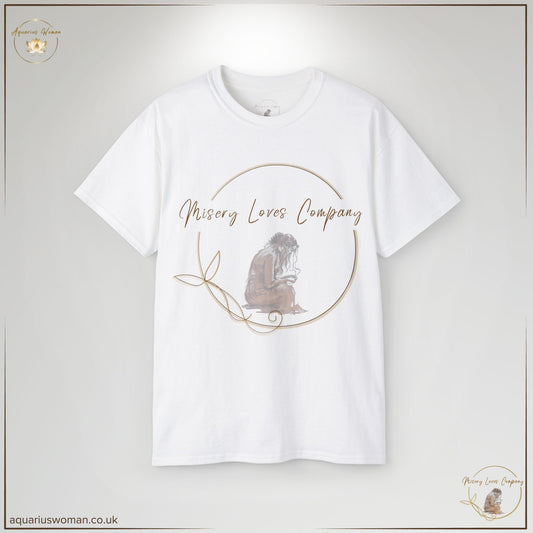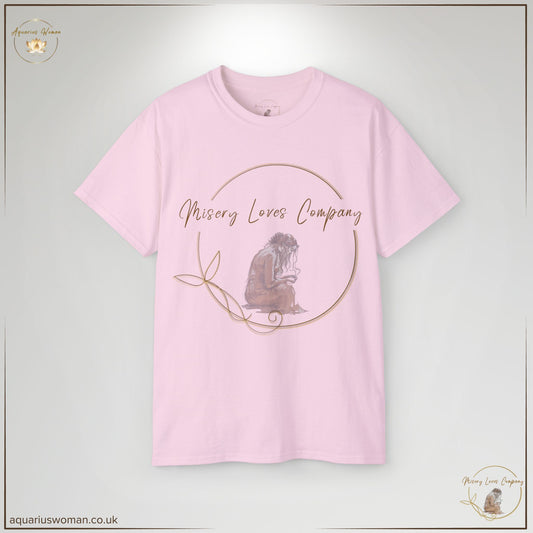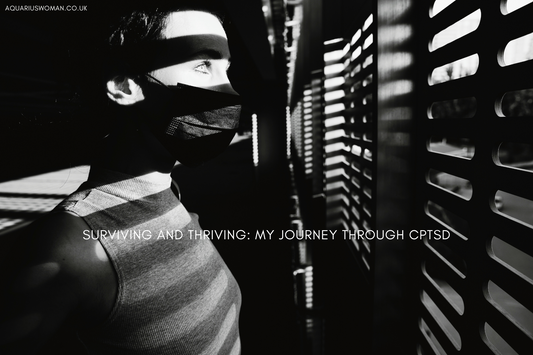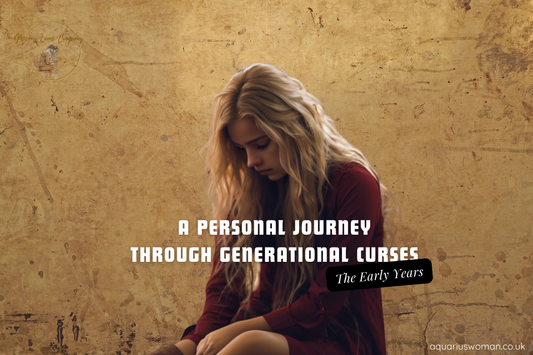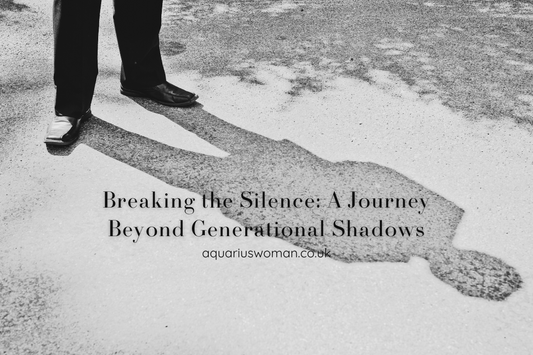Welcome back to the "Generational Curse Breaker Chronicles," a series dedicated to exploring the complex layers of family dynamics and the journey of healing from generational trauma. In the first instalment, "Breaking the Chains - A Journey into Generational Curses and the Curse Breaker", I set the stage by defining what it means to be a generational curse breaker and delving into the concept of generational curses. We examined the often-invisible chains that bind families in cycles of behaviour and the brave souls who dare to break free.
In this second instalment, I will delve deeper into my personal story, focusing on my early childhood experiences and the family dynamics that profoundly shaped my understanding of the world. This journey has been one of profound introspection and healing, and sharing these deeply personal experiences is both challenging and cathartic for me.
Disclaimer
This blog series is a part of my ongoing healing journey. Even now, as I write and reflect, I find myself confronting uncomfortable feelings and memories. My goal is to share my truth with honesty and respect, understanding that each story has many sides. This narrative is my perspective, shaped by my experiences and emotions. I acknowledge that my intention is not to place blame but to provide insight into the complex dynamics that many families navigate. By sharing my story, I hope to offer a space for others to reflect on their own experiences and perhaps find solace in knowing they are not alone.
🖤🖤🖤🖤
The Early Years
My early childhood memories are a patchwork of fleeting moments, shaped by the stark contrast between the loving order of my grandparents' home and the chaotic unpredictability of my parents' house. Born to very young parents, my mother was just 18 when I arrived, my early years were spent living with both my parents and my paternal grandparents.
My mother often recounted feeling overshadowed by my grandmother’s dominant presence, suggesting that my grandmother took on most of my early care. Given the contrasting nature of my mother and grandmother, this scenario seems quite plausible. My grandmother valued order and cleanliness, while my mother, who was very young and lacked assertiveness, did not. My grandmother, having raised three boys, was highly assertive, whereas my mother struggled to find her footing.
One story that stands out involves my mother inadvertently leaving me behind outside the village shops as a baby in a pram. She returned home without me, a detail that, while it ended without incident, hints at deeper issues. As a mother of three myself, I find it almost inconceivable that a baby could be forgotten in such a manner, especially given the distance from home. Perhaps my grandmother’s concerns and her tendency to take over were not entirely unfounded. This incident, as recounted, underscores a troubling sense of underlying abandonment that has followed me throughout my life.
Soon after my brother’s birth, my parents moved into their own home, and not long after, my sister joined our family. I don’t remember the births of my siblings, but I am often reminded of my reactions as a nearly two-year-old. When my baby brother was born, I was more captivated by the chocolates hanging from the Christmas tree than by the new arrival. A few days later, I even managed to climb into the pram and sit on him, an incident that is brought up at most family gatherings, even some 40 years later. This story is often shared as if it was a deliberate act, even though I was not even two years old at the time. In contrast, the story of me being forgotten rarely gets mentioned.
🖤🖤🖤🖤
Contrasting Lives
In my early years, the contrast between the stability of my grandparents' home and the chaos of my parents' household became increasingly apparent. At my grandparents' house, life was a series of predictable, loving routines, polishing shoes on Sunday mornings, shining brass ornaments, and picking fresh mint and peas for dinner. These rituals not only provided a sense of order and safety but also made me feel valued and seen.
In stark contrast, my parents’ home was marked by disorder and instability. My mother’s laissez-faire attitude towards housekeeping was almost a badge of honour, and while I don’t remember much about these early years, I know we were often left to our own devices, mingling with older kids in the neighbourhood.
My father was frequently absent due to long hours at work, though I cherish the rare moments we shared, such as learning to tie shoelaces or playing chess. When I was very young volatile arguments between my parents were a regular occurrence, often escalating to the point where my mother would storm out, leaving me to comfort my younger siblings and occasionally search for her. These early experiences left a lasting impact, as I was thrust into the role of emotional caretaker far too soon.
The death of my grandfather when I was eight was a pivotal moment. His passing removed the one stable figure in my life, and the lack of acknowledgment or discussion about his death deepened my sense of abandonment. My visits to my grandmother’s home became less frequent, and I found myself increasingly caught in the toxic dynamics at home.
As I grew older, particularly around the age of ten, my father’s extended absences due to working away a lot and my mother’s emotional unavailability forced me into a role I wasn’t prepared for. I became an emotional crutch for my mother, who shared the details of their failing marriage with me, adding an overwhelming weight to my young shoulders.
By the time I was eleven or twelve, my father’s return marked a reconciliation between my parents. However, this shift led to even greater responsibilities for me as I was often left at home to care for my younger siblings. What began with occasional nights out evolved into regular responsibilities, including after-school hours and eventually entire days during school holidays. This progression marked my transition into adolescence, where I increasingly bore the weight of caretaker responsibilities, reflecting the deepening impact of the unstable family dynamics that had been shaping my early years.
🖤🖤🖤🖤
Early Indicators of Generational Patterns
From a young age, two significant factors laid the groundwork for the generational curse that would profoundly influence my life: the stark contrast between my two homes and the lack of a nurturing maternal bond.
Unlike my younger siblings, who seemed to integrate more easily into the chaotic dynamics of our household, probably because they knew no different, I often felt isolated and out of place. I must have learned early on that being my authentic self was not a quality that was praised at home. Instead, my independence and headstrong nature, traits that my grandfather cherished and nurtured, were seen as problematic by my mother. This taught me to adapt to others' needs, setting the foundation for navigating and coping within a toxic family dynamic where my true self was often overlooked or undervalued.
One vivid memory underscores this early realisation: on one of the rare occasions my mother walked me to school, I observed a stark contrast between us and the other families. While other children held hands and chatted with their mothers, we walked in silence, separated by an invisible barrier. This quiet journey was emblematic of our relationship, cold and distant, leaving me with a profound sense of the disconnect. This early observation has stayed with me, vividly remembered to this day, and marked the beginning of my awareness of the complex family dynamics at play.
🖤🖤🖤🖤
Neglect and Its Consequences
The neglect I experienced during my childhood, whether a result of my mother’s overwhelming circumstances or otherwise, profoundly affected me and my siblings. While the neglect was not overtly harmful, it was pervasive and deeply impacting. Our appearances often went unattended, leaving us to navigate school in a state of disarray, unkempt, sometimes smelly, and visibly dirty. This consistent neglect made us targets for bullying and stigmatised us among our peers.
The emotional toll was significant. Despite the pain and embarrassment, we received little support or guidance to address these issues. I learned early on to manage this challenging environment by taking on responsibilities beyond my years, including handling laundry and meeting my own needs as best I could.
One particularly crushing realisation came when a friend’s subtle hint revealed my ignorance about basic hygiene products, such as deodorant. This moment crystallised the extent of our neglect and the absence of fundamental care in our upbringing. It highlighted not just the impact on our self-esteem and social experiences but also suggested a deeper, more rooted issue within my mother’s struggles. Her lack of care at home mirrored a broader struggle, potentially indicating unresolved issues or inadequacies that she was unable to address.
🖤🖤🖤🖤
Echoes of Chaos
Living in a chaotic and dirty household profoundly impacted my early childhood, leaving lasting impressions that shaped my understanding of home life. Each morning was a frantic scramble as we raced against time to get to school, often missing essential items like shoes or hairbrushes. This constant disarray became a source of deep embarrassment, especially as I grew older and visited friends' homes. These experiences starkly highlighted how different our lives were compared to theirs.
The contrast was further underscored when I hosted a French pen pal, an event that brought my family's lack of care into sharp focus. Despite my eagerness to tidy up and clean for our guest, my mother refused to let me clean, promising she would do it, yet when we arrived home it was way worse than its usual state of disarray. The embarrassment and shame I felt were overwhelming, compounded by my mother's apparent indifference to my distress. This lack of effort and the emotional disregard I experienced only deepened my sense of inadequacy and highlighted the broader issues at play within our family dynamic.
🖤🖤🖤🖤
Emotional Disregard
As I transitioned into my teenage years and began developing a stronger sense of self-awareness, the dynamic between my mother and me grew increasingly strained, highlighting the complexities often seen in mother-daughter relationships.
On the rare occasions we went out together, my mother seemed to relish in causing me embarrassment. She would deliberately draw attention to us, sometimes by mimicking disabilities while walking through town, fully aware of how uncomfortable it made me. Her actions seemed to be a calculated effort to undermine my growing self-confidence.
One particularly mortifying incident involved an impromptu "sex education" lesson she decided to conduct for me and my siblings in a public setting, a McDonald's restaurant. The uncomfortable stares from other patrons only heightened my embarrassment, making it clear that our emotional needs were not just neglected but sometimes actively disregarded.
Throughout these experiences, I was aware of my mother's struggles with her own identity and possibly unprocessed traumas. She often confided in me about her past and present issues, effectively using me as a substitute confidante. This dynamic blurred the lines between mother and daughter, making it difficult for me to understand the appropriate boundaries.
🖤🖤🖤🖤
Navigating Adolescence and Isolation: A Strained Mother-Daughter Relationship
Around the age of 13 or 14, as I entered puberty, the already delicate relationship with my mother reached new heights of tension. Although I had a solid group of friends and participated in typical teenage activities, our home life was becoming increasingly strained. I wasn't a perfect teenager, no one is, but my rebellious moments were minor and within the bounds of normal adolescent behaviour. However, during the times when I needed safety and support the most, my mother’s responses were often dismissive or even punitive, leaving me feeling utterly abandoned.
One of the first significant setbacks came when I was barred from pursuing IT studies at school. This was a devastating blow, as I had specifically chosen my school for its state-of-the-art IT suite, a rare opportunity in the mid-80s. I excelled in the subject, never doubting my place in the class. However, the IT teacher informed me that computer studies were "not a field for a girl" and suggested I take typing instead. To make matters worse, I was assigned double PE, rather than even being offered the typing class. This blatant sexism and the shattering of my academic ambitions left me reeling, feeling invisible and dismissed in a system that should have nurtured my potential.
The situation deteriorated further when I became a target of bullying during PE lessons. One girl, who had a more mature boyfriend, targeted me viciously. I was kicked in the head against a wall during lunch, all my friends ran in fear they would be next, and on another occasion, jabbed with a pen knife on my way home.
I reported these incidents to both the school and my parents, but nothing changed. The school's indifference and my mother's lack of action made me feel completely unsafe and unsupported. The bullying, combined with the rejection of my academic aspirations, drove me to stop attending school altogether. My mother's solution was to drag me to school in my pyjamas, leaving me in the office, a public humiliation that only deepened my sense of isolation and shame.
As I withdrew from school, I began skipping classes and wandering the streets, seeking solace in the company of other misfits like me. My mother blamed my friends, labelling them as bad influences, but she never took the time to understand my need for a safe and supportive environment. I repeatedly begged to transfer to another school, but my pleas fell on deaf ears, further entrenching my feelings of abandonment.
One particularly distressing incident occurred when my mother discovered my locked diary, which I had poured my heart into. In an act that felt like the ultimate betrayal, she took it to the police because I mentioned trying weed with a group of my friends. This violation of my privacy, coupled with her attempts to blame me for unrelated incidents, like a fire at a local primary school, only widened the rift between us. It felt as though she saw me not as her daughter, but as a problem to be managed or a burden to bear.
My situation reached a breaking point on Halloween. Overwhelmed by the chaos in my life and feeling utterly lost, I made a desperate decision. I left a gathering with friends, walked to a phone box, and called emergency services, I had taken an overdose of pills. The ambulance arrived quickly, and I was taken to the hospital. My memories of that night are foggy; I can't recall if my parents visited me or how they reacted.
The following morning, I saw a child psychologist briefly before being discharged with little fanfare or discussion. The real shock came when a social worker arrived at the hospital, carrying my belongings in bin liners. I was informed that my parents had given me up to the care system, effectively severing the last tenuous link to my family.
The cold, clinical nature of this handover, my life reduced to a few bags of clothes and essentials, was devastating. It underscored the complete absence of emotional support and the deep disconnect that had always characterised my relationship with my mother. Despite the chaos and confusion, my cries for help had been consistently overlooked, leaving me to navigate a turbulent adolescence largely on my own.
🖤🖤🖤🖤
A New Life
My entry into the foster care system marked a profound shift in my life. My foster family was a large, bustling household with five biological children, two foster children, and one adopted child. Their home was a sanctuary, reminding me of the warmth and stability I had felt during my early years with my grandparents. Here, for the first time in a long while, I felt genuinely happy and safe.
I settled into a new school, repeating a year to catch up academically. This gave me the chance to fully engage with my education and start fresh. Although I had a rebellious streak, my foster parents' approach, marked by genuine listening and validation of my thoughts and feelings, gradually helped me find my footing. For the first time, I experienced what it meant to be part of a supportive family environment, where my presence was valued, and my concerns were taken seriously.
Despite the physical proximity to my biological family, just a mile away, I did not see them during this time. I learned later, that my mother had taken in my sister’s friend, who was experiencing problems at home. This news cut deeply. How could she provide support and sanctuary to a stranger while rejecting her own daughter? This felt like a profound betrayal, a painful confirmation that I had been somehow unworthy of the care and protection she could offer to others.
Nonetheless, I was content and thriving, until my sixteenth birthday. It was then that I was abruptly informed that I would have to return to my parents’ home. The reason was blunt: the funding for my foster placement would end when I turned 16. This news was devastating. It was a harsh reminder that the care and safety I had finally found were conditional, dictated by external factors like funding. This experience left me feeling discarded and underscored the lesson I had been internalising that my needs, even the most basic ones, seemed always to come with a price tag.
🖤🖤🖤🖤
The Final Break
As fate would have it, I returned to my family on my 16th birthday. There was no birthday cake or celebration, just a couple of cards and some cash, a stark, empty gesture that underscored the emotional distance that had always existed between us. Desperate for some semblance of normalcy, I went out looking for my old friends. I walked to our usual hangouts, hoping to reconnect, but it seemed they had all moved on. The realisation that I was now truly alone was overwhelming.
Within weeks of being home, I fell ill with Scarlet Fever, which soon developed into Rheumatic Fever, a somatic reflection of the turmoil I felt inside. This illness led to complications, including severe pain and mobility issues, eventually being diagnosed with rheumatoid arthritis.
Each day was a struggle; the pain in my joints was so intense that even the slightest knock could send waves of agony through my body. This left me limping and unable to move freely, and my school attendance suffered dramatically. On the rare occasions I managed to attend, I would sneak into the school hall after assembly had begun, to avoid being bumped in the crowd, yet the humiliating scolding from the head of house, who refused to believe I was genuinely ill, would further impact my wellbeing by shouting at me across the quiet hall and making me stand in shame for all to see.
The school's lack of understanding and support compounded my distress. My life felt as though it had been turned upside down in just a few short months. I was trying to catch up with my studies during the May mock exams, but the weight of everything was too much to bear. One day, during lunch, I found myself with friends outside the school gates. We were approached by a car with someone we knew in the back, accompanied by a couple of Rastafarians in the front. We exchanged a few words with our friend and then returned to school as the lunch break ended.
As I headed towards the hall for my exam, I was suddenly called to the headmaster’s office. The headmaster was livid, shouting at me and accusing me of tarnishing the school's reputation because of the company I kept. He jabbed me in the chest, his harsh words and aggressive demeanour leaving me terrified and overwhelmed. The pain from his jabs sent shockwaves through my already fragile body, making me cry out. In his eyes, I was just another troubled pupil, a perception that crushed me, given all I had been through. Despite my attempts to explain, he dismissed me, telling me I could leave school whenever I wanted because I had dropped a year.
This dismissal was the final straw. I left the school building, my heart pounding with a mix of anger, fear, and despair. I walked straight home, where my mother met me with fury. The school had called, accusing me of being rude and disrespectful to the headmaster. My father's reaction was equally harsh; I was grounded and confined to my room for the entire summer.
The injustice of it all was too much to bear. That evening, as my family continued with their routines, the TV on and my mother in the kitchen, I made a quiet decision. With nothing but the clothes on my back, I left the house, seeking an escape from the suffocating confines of a home that had never truly been a sanctuary. There was no dramatic farewell, no bag packed with essentials, just an overwhelming need to leave a place that had failed me so profoundly.
I climbed out my window and ran away, feeling both terrified and liberated, determined never to return to the place that had let me down so deeply, a promise I have kept to this day.
🖤🖤🖤🖤
The Impact of Abandonment
The profound sense of abandonment I felt during my childhood and teenage years has had a lasting impact on my life, influencing my choices and relationships into adulthood. Reflecting on these formative years, I recognise the enduring scars left by being emotionally neglected and the overwhelming sense of isolation I experienced. The emotional weight of these experiences has been difficult to unpack, often feeling like an ever-present shadow.
My mother's unresolved trauma and her emotional distance deeply influenced our relationship, creating a cycle of emotional neglect that I am still working to break free from. The lack of a nurturing maternal figure during critical developmental stages left me grappling with feelings of unworthiness and a constant search for validation.
As I navigated adolescence and early adulthood, I found myself drawn to relationships and situations that mirrored the chaos and neglect of my childhood home. This unconscious repetition of familiar patterns has been one of the most challenging aspects of my journey toward healing. The process of breaking these cycles requires deep introspection, understanding the roots of these behaviours, and consciously choosing healthier paths.
🖤🖤🖤🖤
Reflecting on the Journey
Writing this blog and sharing my story has been a powerful exercise in vulnerability and healing. It is a part of my ongoing journey to break the cycle of generational trauma and create a healthier, more positive legacy for my own children. By acknowledging the complexities of my upbringing, I hope to provide a nuanced perspective on the challenges many face in similar situations.
Reflecting on my journey, it is clear that the core issue was not obvious abuse or overt neglect, but rather the emotional unavailability of my mother and her consistent unwillingness to acknowledge or address my needs. While it may not have been intentional—perhaps she was simply unable to meet my needs—the result was a profound sense of not being seen or heard.
This "curse" of invisibility and emotional neglect created a deep lack of self-worth, a wound that has influenced every aspect of my life. This sense of inadequacy perpetuated far beyond my early years, impacting my relationships, self-esteem, and overall life trajectory. The emotional scars of not feeling valued or understood were as damaging as any physical harm, shaping my identity and choices in ways I am still uncovering.
In my family, I was cast into the roles of the black sheep and the scapegoat, with my needs and actions often unfairly blamed for the family's issues. It felt as though my very existence and struggles were seen as the root cause of every problem. These roles weren't just labels, they made me the target of negative attention and criticism. While these dynamics are still present today, they no longer affect me as deeply as they once did. I've learned to recognise and detach from these unfair perceptions, although their impact on my family relationships remains evident.
I also recognise that my journey is not unique; many people struggle with the echoes of their family's past and the weight of unspoken expectations and unresolved issues. My hope is that by sharing my experiences, others may find the courage to explore their own stories and begin their journey of healing.
🖤
Thank you for joining me on this journey through generational healing. Stay tuned for the next instalment of the "Generational Curse Breaker Chronicles," where I will continue to explore the themes of growth, healing, and breaking free from the past.
If my story resonates with you or sparks something inside, I encourage you to follow along as I continue to share the intricate details of my journey in future posts. For those who appreciate a more concrete representation of these experiences, I also offer a collection of custom designs that embody the themes of breaking generational cycles. Each creation is made with intention and tells a unique story, just like the ones discussed here.
Thank you for taking the time to read and engage with this blog. Whether you're here to find connection, gain insights, or simply out of interest, I hope you discover something meaningful. Your journey is uniquely yours, and I wish you strength and clarity on your path to healing and self-discovery. Until next time, take care and continue to seek the light.
Enjoyed this post? Sign up for our mailing list below to stay updated on new blog entries.

